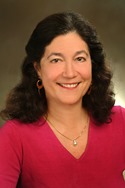
Winter 2017
Dr. Winnifred Cutler: Getting the Word Out on Wellness and Freedom

Katarina Friberg Felsted, MS, Aging SIG
This article features an interview with Dr. Winnifred Cutler, PhD, founder of The Athena Institute for Women’s Wellness, Inc.
Aging SIG: Dr. Cutler please give us a brief background of your career trajectory. What types of previous jobs and experiences have led you to your present position?
WC: I earned my PhD in biology from the University of Pennsylvania followed by a post-doctoral fellowship at Stanford University where I founded The Stanford Menopause Study. Retuning to Penn, I co-founded the Women’s Wellness Program. In 1986 my co-discovery of human pheromones received major news coverage. I left Penn to found The Athena Institute for Women’s Wellness, Inc. To date I have had 50 scientific papers published and 8 books, including 2 invited medical textbooks.
Aging SIG: Most recently, you’ve analyzed data around overestimates of health risk.
WC: Yes, most American women have never had a diagnosis of invasive breast cancer. We asked what can these women expect over their next 25 years? This appears to be the first time a systematic study was undertaken to identify the long-term risk of invasive breast cancer among women who have never had a prior diagnosis.
Aging SIG: From what I’ve read, you conducted a secondary data analysis of almost 2.5 million women, meeting stringent criteria.
WC: Yes. We were able to locate 19 highly respected published trials that each met all 5 of our stringent criteria: every enrollee had no prior history of invasive breast cancer at the outset of screening; the number of enrolled women, the length of follow up, and the number identified with invasive breast cancer during the follow-up period were all known; no woman could be counted twice.
In June 2015 the Public Library of Science published the paper my coauthors and I wrote with the long title of “Invasive Breast Cancer Incidence in 2,305,427 Screened Asymptomatic Women: Estimated Long Term Outcomes During Menopause Using A Systematic Review."
Aging SIG: What are the most important results and implications of these findings?
WC: Three discoveries emerge from this unbiased very large pool of data:
1] Less than 5.5% of peri and postmenopausal women who currently are free of a past history of breast cancer will be diagnosed over their next 25 years of life.
2] For many women the next 25 years means that they will live breast cancer free the rest of their lives.
3] There are 7 healthy habits a woman can form to lower her risk even more and many SBM members work diligently on many of these:
1. Prevent weight gain through a healthy dietary practice (e.g. The Mediterranean Diet)
2. Build a practice of daily exercise to total at least 30 minutes a day, ideally in fresh air
3. Enjoy a moderate amount of wine (6 ounces per day for a 135 pound woman) but avoid excess
4. Enjoy daily sunshine on skin of whole body for about 15 minutes or take 2000 mg of vit d3
5. [minimize?] the sex hormone aging changes by learning about and engaging in good options
6. Recognize the breast benefits of sequential bio identical HRT and the dangers of continuous combined and/or synthetic forms of E&P
7. If asymptomatic, refuse mammogram screening but submit to professional breast exams
Aging SIG: How do you hope these results are assimilated by scholars and consumers of health care?
WC: I hope that women can engage in aging well, rather than focusing on the potential for illness and that SBM can help us spread the word among their membership. Once the members have the opportunity to attend our presentation, and perhaps check out our link on the topic that precedes the March 2017 SBM presentation, they might help spread the good news.
Aging SIG: Do you have any suggestions or tips for young scientists looking to pursue a career path that is an alternative to traditional academia?
WC: Yes. I would suggest that young scholars focus their energy on ways they can make a contribution to knowledge that will improve the quality of health care.
Aging SIG: Any final thoughts?
WC: Please visit our website which is full of information. Perhaps starting here.